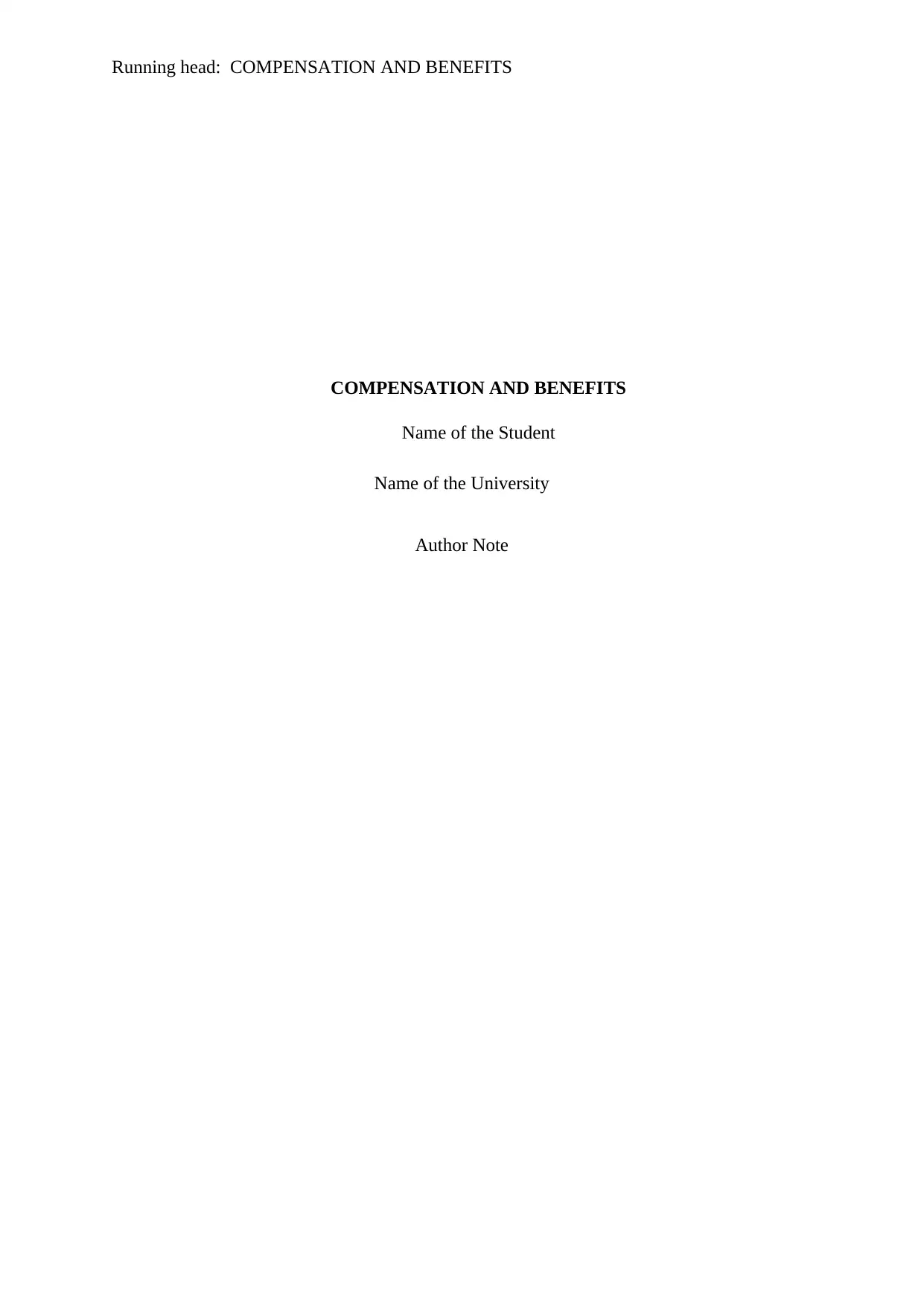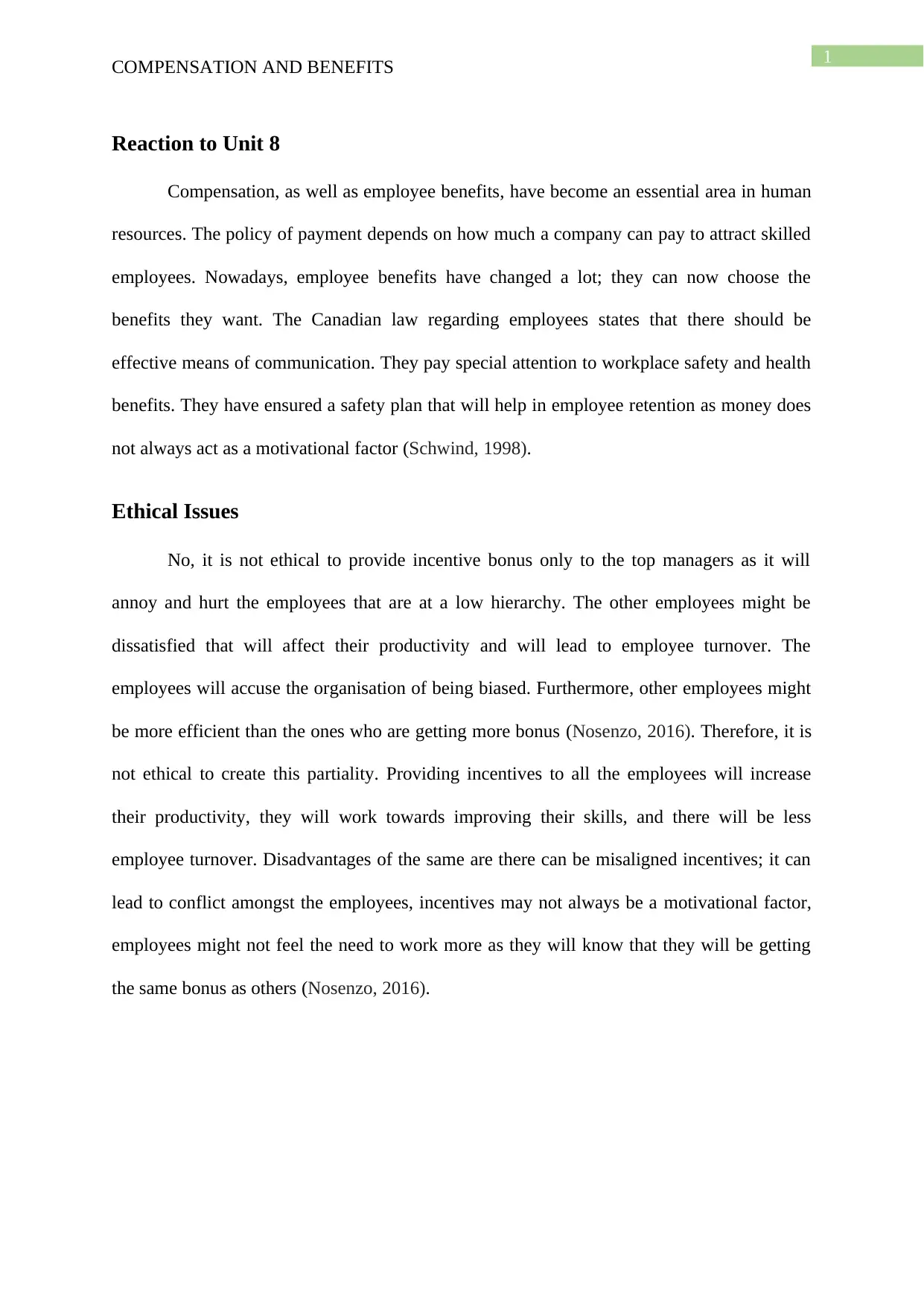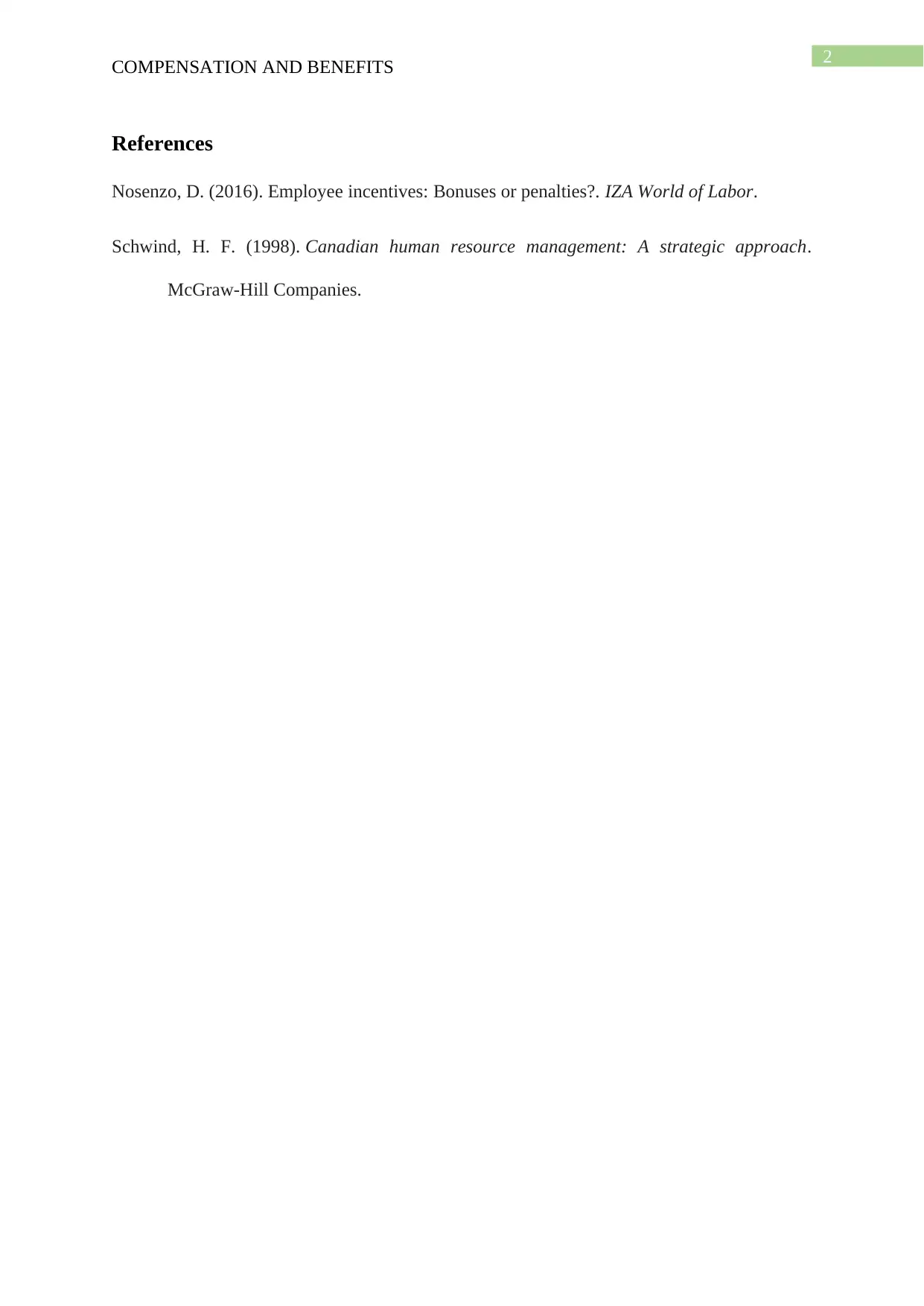Compensation and Benefits Analysis: HRM 0100, University Name
VerifiedAdded on 2022/08/12
|3
|352
|18
Homework Assignment
AI Summary
This assignment delves into the realm of compensation and benefits within the context of Human Resource Management (HRM). It explores the evolution of employee benefits, from basic coverage to the modern 'cafeteria approach,' and the importance of balancing company affordability with the need to attract skilled employees. The assignment specifically examines the ethical implications of incentive programs, arguing against providing bonuses solely to top managers and highlighting potential drawbacks of various incentive strategies. The solution references relevant literature and emphasizes the significance of workplace safety and employee retention. It underscores the importance of fair compensation practices and their impact on employee morale and productivity.
1 out of 3









![[object Object]](/_next/static/media/star-bottom.7253800d.svg)